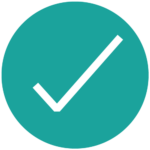3. Make a list of questions you want to ask. As you do your research, you should start to compile a list of questions for each particular employer. This may include their hiring process, what they value most in employees, prospects for personal growth and advancement, long-term vision, and other related questions. Some of your core questions may remain the same, but some will also depend based on what your research turns up for each individual company.
4. Give yourself adequate time to talk to as many employers as possible. Plan on arriving at a job fair as early as possible and prioritize who you want to speak with. Recruiters do get a bit weary after a long day in a booth or at a table. If you meet them when both of you are fresh, there’s a better chance you will make a more positive impression than if you are both just counting down the minutes to the end of the day’s proceedings. You also need to build in some time for “wild cards,” which are employers you spot unexpectedly that pique your interest.
5. Hone your elevator speech. Nothing impresses more than a great first impression. Begin with a great handshake and make good eye contact. Provide an employer with concise and relevant information about you, highlighting benefits of what you have to offer and how they would be a good fit in their company structure. Understand that job fairs are a numbers game for many employers and they are there to make contact with not only quality employee leads, but with as many quality leads as possible. Learn to read verbal cues and body language so that you know when to politely end a conversation. If the interest is there, find out the best way to follow up.
6. Dress the part. First impressions also include a potential employer taking note of how you are dressed and groomed. That means no wrinkled clothes, neatly coiffed hair, no overpowering perfumes or body sprays, manicured nails, and a conservative wardrobe. Brush your teeth and if you smoke or drink coffee, bring and use breath mints. From your research, you will probably see photos of employees and have a pretty good idea of what the corporate dress code is. Be sure to mimic it so that you don’t disqualify yourself. To maintain your energy, make sure you eat a good meal before you go. Drink enough coffee to maintain your energy but be careful about that “extra” cup which could give you noticeable jitters and add too much to your adrenaline quotient for the day.
7. Network with other job hunters. No two job hunters are alike. Similarly, rarely are two job hunters are searching for the job. If you are able to talk to others who may come across what you are looking for, you increase your odds of landing the job you want. Talking to others also allows you to engage during what might otherwise be awkward moments as you’re taking a break or waiting to speak with an employer. It is also a good way to keep your energy up during those “in-between” moments.
8. Follow-up with interested employers immediately. Be sure to send an email or a letter out to employers you spoke with where there may have been a mutual interest or those companies that you want to pursue further. Be sure to thank them for their time, mention any specifics you discussed, and ask about next possible steps.



